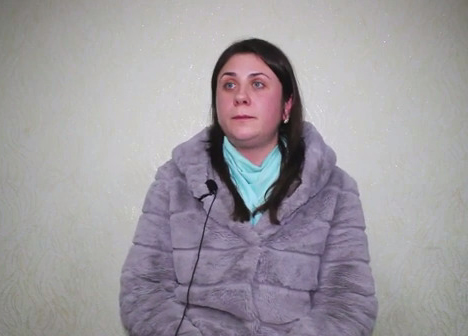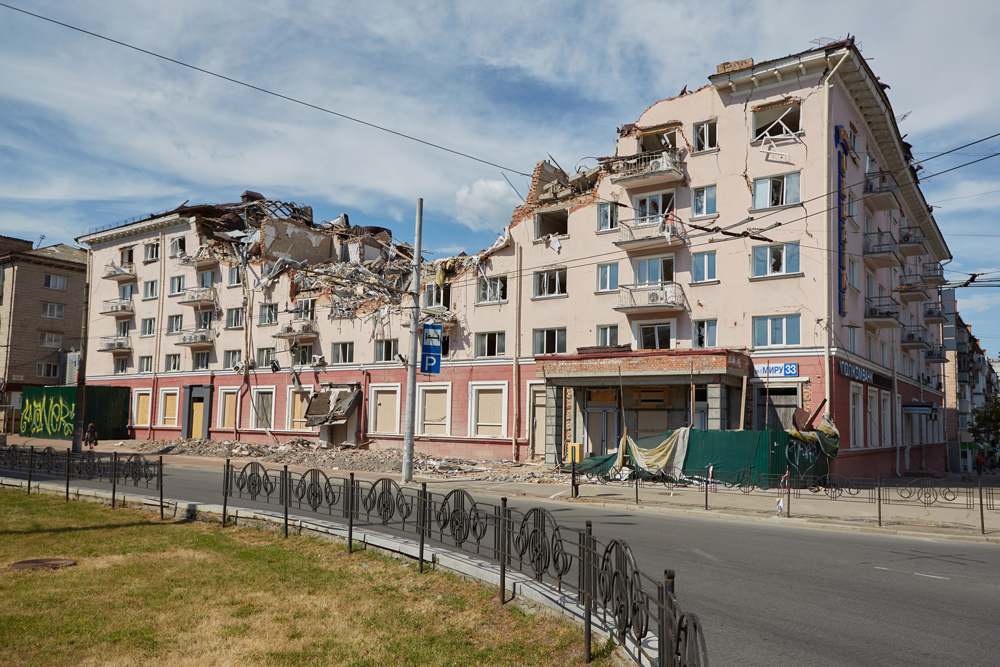‘I realized that there’d be an apple tree, the sky, the sun, but I’d no longer be’
The eleven-year-old daughter of Yevheniia Savynska, the wife of a military man from the village of Kyinka in the Chernihiv Region, said these words. Numerous attacks forced the family to evacuate to Chernihiv and, later, the Khmelnytskyi Region. Yevheniia admits that now she is most worried about the child's spirit.
— I work as a kindergarten teacher. The building is unfortunately damaged. But now they are already carrying out repairs and plan to open soon. Life seemed to be on hold now. The worst thing is the experience of my child. I can see how the war affected her. An eleven-year-old girl told me the following phrase: “Mom, I thought I was going to die.” I asked: “Daughter, how did you figure it out?”
She replied: “I realized that there would be an apple tree, our mulberry, there would be sky, there would be sun, but I would no longer exist.”
It was a very mature adult response. And it was scary.
My husband is a military man, and his unit was stationed where we live. Under the store, we were given a place for the wounded, if any. Then the shelling began. When the rubble was cleared after it, one boy’s body was gathered piece by piece. Why do I say "boy"? Because later we found his hat and documents. The last and first name and birth year were written there — 1998. His name was Dmitry.
Thirty-five soldiers died in our district. One was born in 98, and the other was over thirty. There was also a man who retired before the war. When the war began, he asked for weapons and said that he would go to fight. Four days later, he died. That is, the person was retired; he should not have gone to serve.

— Tell me, please, where did you hide during the attacks?
— We have two-story houses, and in the central place, there was a bomb shelter. It was more or less equipped. We listened to the news. We put it in order, made stocks of provisions, and brought camp and picnic things and gas cylinders. After the first shelling, we had no gas, water, or electricity for a long time.
My husband had been fighting since 2014. It so happened that he was sent here along with his brothers. His toothbrush was passed around their unit because there was nothing. They washed it with boiling water and brushed their teeth. Before that, their equipment and infantry fighting vehicles burned down in the Ripka direction, and everything perished.
I was home during the first shelling. I was asked to bring out the boiling water. A military doctor was there, and it was necessary to disinfect something with boiling water. So I waited for the pot and the kettle of water to boil. I would have carried it out in three more minutes, but suddenly the shelling began. It killed the guys who were standing near the store. After the first shelling, I immediately turned off the gas because I feared everything could flare up. And then I ran between the shelling to the bomb shelter because I knew my daughter would be worried. I have never run as fast.
Of course, we didn't sleep at all. Everything was rattling and shaking. There were a lot of people in the bomb shelter.
There were about thirty people in a small room of 20 square meters. There were also animals: cats and dogs. Everything was mixed up: horses, people. The shelling was intense; later, my husband took us with the child and a few others. And eventually, everyone was evacuated.
We moved from Kyinka to the city and came to my husband's parents. They lived in the central district. It was loud there, too: planes, attacks. Our guys were stationed in Kyinka, and I felt needed; we always did something and helped. However, now we just sat with nothing to do. So I gathered my friends and neighbors, and we donated blood.

We had just donated blood and were leaving the blood center when we encountered kilometer-long queues around. There were difficulties with food. Then we saw a plane flying to Chernovol. It is very close, and everything was damaged within a radius of 3 kilometers. The girls and I hid for four or five hours. We made small dashes from one bomb shelter to another. Getting to my husband's parents usually takes 20-25 minutes, but we traveled for four and a half hours. Parents there, of course, turned gray. They thought we would never return.
On 17 March, we left for the Khmelnytsky region. There was no water or electricity in the city. There were problems with food. Finally, my husband asked us to leave so that he would not be torn but could calmly do his job and not worry about us. About three days later, when we were in the Khmelnytskyi region, I woke up at night because my daughter was crying. She said,
“Mom, why didn't I appreciate my life? Why didn’t I appreciate my school, friends, and clubs?”
She studied singing and Italian and went to art school. Her drawings were exhibited at various shows. And now she said: “Why didn’t I appreciate it? We will no longer have such a life as before the war.” Her disappointment struck me the most, not bombs, but the fact that my child suffered so much mentally.





